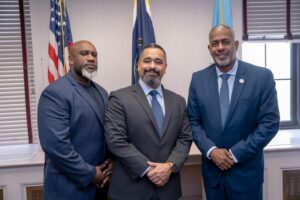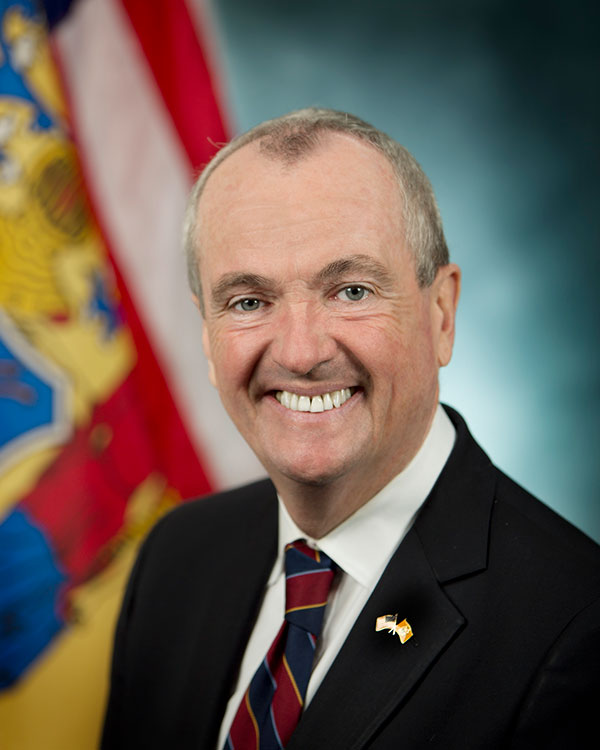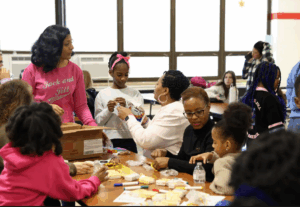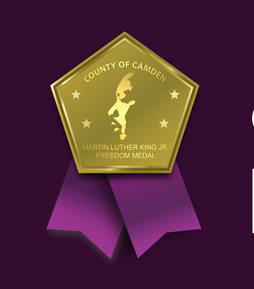Chamber of Commerce SNJ Finds Support for DEIB at Luncheon
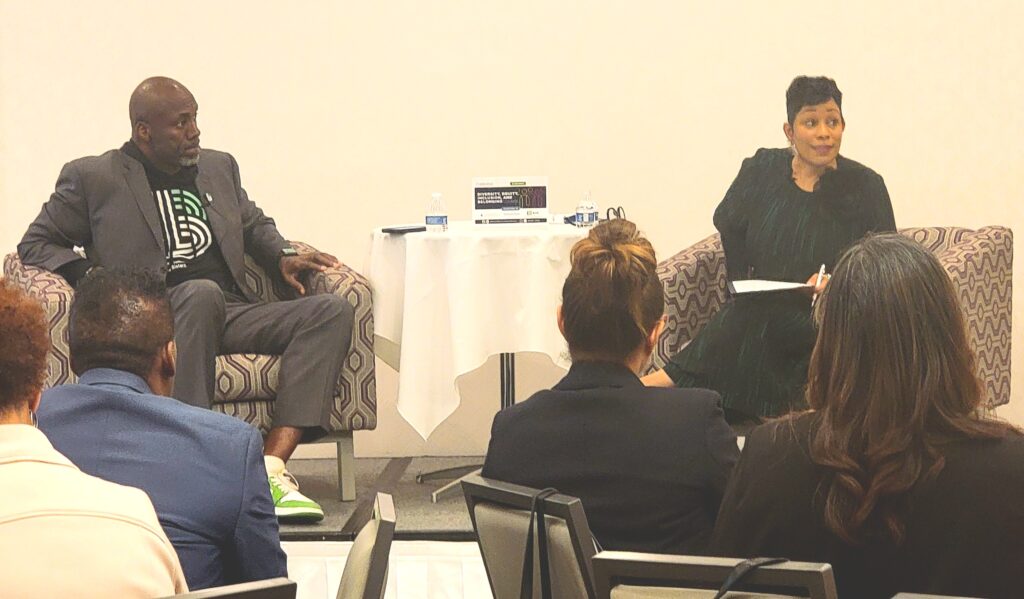
Marcus Allen, of Big Brothers Big Sisters Independence Region and Kimberly S. Reed, of Reed Development Group, speak at the DEIB Luncheon held by the Chamber of Commerce of Southern New Jersey in Mount Laurel on March 31, 2025. Photo by Meredith Winner/Mer-Made Photography.
MOUNT LAUREL — When speaking today about DEIB — Diversity, Equity, Inclusion and Belonging — today, the words “courage” is often used.
That word was often spoken at the March 31 DEIB luncheon put on by the Chamber of Commerce of Southern New Jersey, attended by some of the top business leaders in the region. It was used as many in the room held fast to DEIB principles and spoke truthfully about why it exists.
Marcus Allen, CEO of the Independence Region of Big Brothers Big Sisters, gave a full-throated endorsement for DEIB and clarified what it is not to dispel many of the falsehoods that have been widely shared. President Donald Trump’s executive order banned it in the federal government.
Kimberly S. Reed, a diversity expert and founder of the Reed Development Group, acknowledged that while Trump’s executive orders against DEI directly affects the federal government and those receiving its funding, the pressure to follow suit in the business and nonprofit sector is being felt strongly.
“Both corporate and nonprofit spaces are feeling this,” she told attendees at the luncheon. “We know that this conversation of diversity, equality, inclusion and belonging is evolving.”
Allen read to the audience an unpublished op-ed about DEIB, laying out the case for it while addressing some untruths that have been allowed to fester in the public sphere. He took questions from Reed executive and then the audience in a “Fireside Chat” format.
Allen said over the six years he’s led the Big Brothers Big Sisters, they have looked into the operations of the organization using the Entrepreneur Operating System, or EOS. He said every three years, they look at BBBS’s core values, where DEIB is examined under a microscope. There, they once again found how important it is to reach its goals.
Allen said he believes a business case can be made for diversity in any industry, if you are looking honestly at the profit sheet.
“The data tells us that there is a business case for diversity,” Allen said. “What is the most diverse country in the world? If you said the United States, that’s right. What country has the biggest GDP (gross domestic product) in the world? The United States. I don’t think its any coincidence that the world’s most diverse country has the world’s biggest GDP.”
Allen said that by being inclusive, you make your company stronger, because you can fill in the missing talent gaps, allowing you to serve a wider range of people. In the end, businesses become more competitive and successful.
“As a businessperson, when we hire people who are authentic, and you’re telling me exactly who you are, I will want you to lean into your authenticity to help us achieve business goals,” Allen said.
“Because I’ve got 100 people bringing their heritage — history and all of that stuff to the table — then that’s going to make my organization as competitive, if not more competitive, than anyone else. That’s the case we’re trying to say to people today.”
Reed took another view, saying that she never makes a “business case” for DEIB because those principles should already be part of the company’s DNA. She said when that is not the case, companies simply go through the motions of “checking off boxes.”
She said she preferred the term “equality over equity.”
“You will never hear me say equity,” Reed said. “A lot of times, people equate equity with money, and then the DEI conversation turns into quotas. Money and my firm doesn’t have anything to do with that. It has to do with the equality of people. That should be the goal of the nation.”
“We do not make a business case for diversity,” Reed said later in the program. “We create an engagement strategy on how ultimately, it becomes part of the DNA of your business so it can be successful and sustainable.”
As the fear over DEIB trickles down from the federal government to private industry and nonprofits, it continues to have an impact. Allen said Big Brothers Big Sisters, which serves about 80% African Americans locally, has suffered layoffs as donations slow around the country.
Allen said a “hope gap” is created when people stop volunteering and giving. He said in tough times, it is more important than ever to be transparent and tell people what is going on, while standing firmly by your mission and principles.
Allen and Reed said that DEIB should become part of one’s business culture and not a separate concept about how you do business. That way, diversity — and the advantages that come with it — becomes an everyday reality for the firm and its employees.
Follow Us Today On:
Note from AC JosepH Media: If you like this story and others posted on Front Runner New Jersey.com, lend us a hand so we can keep producing articles like these for New Jersey and the world to see. Click on SUPPORT FRNJ and make a contribution that will go directly in making more stories like this available. Thank you for reading!

